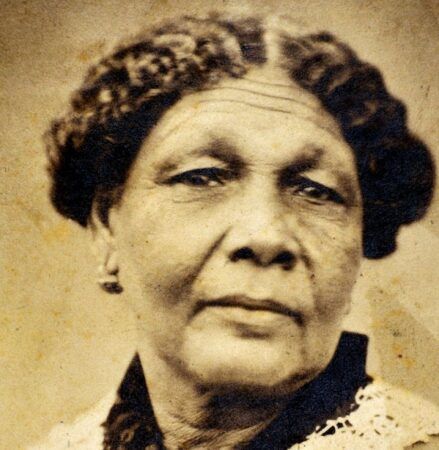Home News & Views Love in Nursing – The Heart of Person-centred Care
Love in Nursing – The Heart of Person-centred Care
Sheila McGovern, FoNS Person-centred Practice Facilitator
The word love often feels out of place in healthcare. It might be viewed by some as too emotional, too personal, something that belongs in poetry rather than professional practice. Yet, we might also see love being at the very essence of nursing care. Not the grand, romantic kind of love, but the quiet, unfaltering love that shows up in moments of presence, in a touch of reassurance and in the deep commitment to ease suffering.
I was recently discussing this with fellow students on an introduction to dramatherapy course and it appears that this is not just a concern for nurses but also social workers and other allied health professional colleagues. There is a reticence to using the L word when it comes to the people we care for.
For many nurses, expressing love through care is instinctive. It is what draws us to the healing profession and what keeps us returning to bedsides, even on the hardest days. Yet as I have experienced in my own nursing practice, many of my colleagues hesitate to name it as love. When we have had a chance to explore this reticence, for some there was a fear of emotional overinvestment, a breakdown of professional boundaries, or the perception that love might cloud clinical judgment.
 However, far from being a weakness, love could be seen as a powerful, guiding force that enhances person-centred care and when practised wisely, does not mean losing objectivity but instead means being fully present with the people we care for. We could also suggest that love in nursing is not about sacrificing oneself through emotional overinvestment but about holding space for others while also understanding the importance of caring for oneself.
However, far from being a weakness, love could be seen as a powerful, guiding force that enhances person-centred care and when practised wisely, does not mean losing objectivity but instead means being fully present with the people we care for. We could also suggest that love in nursing is not about sacrificing oneself through emotional overinvestment but about holding space for others while also understanding the importance of caring for oneself.
In his article entitled Is There a Place for Love in Medicine Leif Haas talks about how he initially distanced himself emotionally from patients, fearing that vulnerability would lead to burnout. Over time, he discovered that opening his heart made him a better doctor. Rather than seeing patients as clinical cases, he saw them as people with stories, struggles and hopes. In my experience, nurses understand this deeply. They know that healing is not just about medications and procedures but also human connection.
Of course, we have to acknowledge that modern healthcare does not always make it easy to have space for these connections. Efficiency, documentation and the huge challenges of high patient loads can often push emotional connection to the background. Yet, we know that when nurses are empowered to engage meaningfully with patients, the benefits extend beyond the individual. Patients heal better, nurses find more meaning in their work, and healthcare becomes more humane.
In his inspiring article, Love as Medicine, Jan Bonhoeffer speaks of the many flavours of love and claims that love is the foundation of healing and not an optional extra in healthcare.
Love in nursing is not about dramatic gestures; it is about grace in the everyday. It is about sitting beside a patient in silence when words fail. It is about remembering a name, holding a hand, and offering presence when everything else feels uncertain. It is in these moments that healing happens, not just for the patient, but for us as well.
As nurses we do this every day often without realising the true impact of our actions. And perhaps if we see love as an action rather than a feeling, we can feel more comfortable with its use. Because love is the choice to see the whole person beyond their illness and to respond with care that respects their individuality.
I am a huge admirer of the Irish writer John O’ Donohue and tend to look to his writing for wisdom on many aspects or curiosities in life. In his book, Anam Cara, he beautifully captures the transformative power of love:
“When love awakens in your life, in the night of the heart, it is like the dawn breaking within you. Where before there was anonymity, now there is intimacy; where before there was fear, now there is courage; where before in your life there was awkwardness, now there is a rhythm of grace and gracefulness.”

Mary Seacole 1805-1881
When I think about love in nursing through this lens, his words remind us that love transforms everything it touches. It turns detachment into intimacy, fear into courage, and routine into grace. When we as nurses embrace love not as an abstract idea but as a way of being, we step into this rhythm of grace, creating spaces of healing not only for the people we care for but for ourselves.
If we truly believe in person-centred care, then love must be at its heart. It is what turns routine care into something meaningful. It is what ensures the people we care for feel seen, not just treated.
And then, can we consider how we see our colleagues and teams through this same lens? How can we view those we work alongside with the love and compassion we extend to the people we care for and their families? After all, we are all human trying to navigate the world including the often-complex world of healthcare, and as one of our early inspirational pioneers of nursing, Mary Seacole, once said “The world is in desperate need of more love, empathy, and compassion”.
References
Bonhoeffer, J. (2023) Love as medicine. Psychology Today. Retrieved from: https://www.psychologytoday.com/gb/blog/heart-of-healthcare/202301/love-as-medicine.
Hass, L. (2022) Is There a place for love in medicine? Greater Good Science Center. Retrieved from: https://greatergood.berkeley.edu/article/item/is_there_a_place_for_love_in_medicine.
O’Donohue, J. (1997) Anam Cara: A Book of Celtic Wisdom. Harper Perennial.
Comments are closed.


